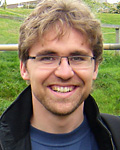Great Throughts Treasury
This site is dedicated to the memory of Dr. Alan William Smolowe who gave birth to the creation of this database.

Peter W. Jedlicka
Author of "The Way Things Are"
"Act without expectations."
"Embrace all situations as opportunities to learn."
"Failure is an opportunity to learn from your and other’s mistakes. But if you always blame others, there is no end to blaming."
"If your goals are not important, your influence will be minimal."
"Life is meaningful only if we give it meaning."
"There are only three things to teach: Simplicity, patience, and compassion. Simplicity in action and thoughts, will return you to the source of your being. Patience with friends and enemies alike, will give you harmony with the way things are. Compassion with yourself, will settle all the differences between you and other beings in the world."
"Observance is the path of life. Non-observance is the path of death. Those who observe life live to the fullest."
"Imbalance is the root of all misery. Every action has a reaction. But seen from the eternal view in time everything will balance itself again."
"Unity requires trust and mutual respect."
"Wisdom and knowledge are different from each other. Intellect alone cannot lead you to a complete understanding. To have the complete truth you have to use your entire being, your mind and your soul."
"Our intuition tells us that there is a general trend in the evolution of nature, a trend towards greater complexity. However, there are several definitions of complexity and hence it is difficult to argue for or against the validity of this intuition. Christoph Adami has recently introduced a novel measure called physical complexity that assigns low complexity to both ordered and random systems and high complexity to those in between. Physical complexity measures the amount of information that an organism stores in its genome about the environment in which it evolves. The theory of physical complexity predicts that evolution increases the amount of ‘knowledge’ an organism accumulates about its niche. It might be fruitful to generalize Adami’s concept of complexity to the entire evolution (including the evolution of man). Physical complexity fits nicely into the philosophical framework of cognitive biology which considers biological evolution as a progressing process of accumulation of knowledge (as a gradual increase of epistemic complexity). According to this paradigm, evolution is a cognitive ‘ratchet’ that pushes the organisms unidirectionally towards higher complexity. Dynamic environment continually creates problems to be solved. To survive in the environment means to solve the problem, and the solution is an embodied knowledge. Cognitive biology (as well as the theory of physical complexity) uses the concepts of information and entropy and views the evolution from both the information-theoretical and thermodynamical perspective. Concerning humans as conscious beings, it seems necessary to postulate an emergence of a new kind of knowledge - a self-aware and self-referential knowledge. Appearance of self-reflection in evolution indicates that the human brain reached a new qualitative level in the epistemic complexity."